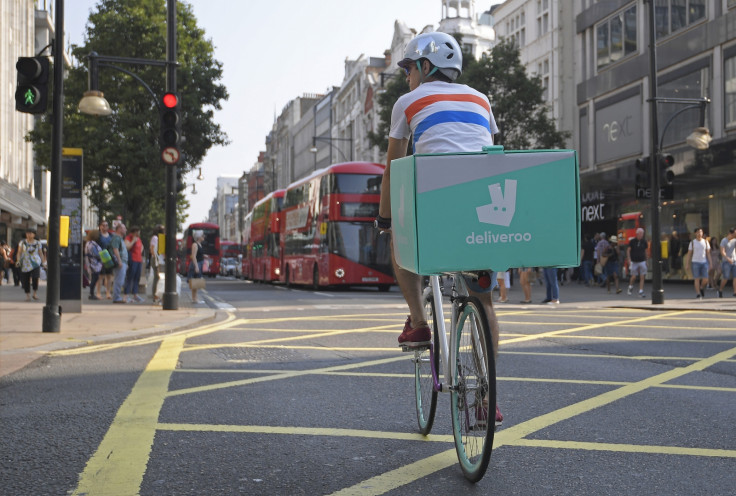Deliveroo wants government to overhaul law and ensure riders get workers' benefits
Food delivery group's riders are not covered by sickness benefits or minimum wage.

Deliveroo workers could be paid injury benefits and sick leave if the government agrees to reform legislation regulating workers' rights.
Companies such as Deliveroo and Uber are currently stuck in a limbo between offering their staff flexible work and benefits such as those related to injuries, sickness and maternity.
The group, an emblem of the so-called "gig economy", urged the government to overhaul legislation that has not been "updated" to reflect the current nature of the industry.
"Central to our popularity with riders and our success as a business is the flexible nature of the work that we offer," the company stated in a submission to the government's review of the "on-demand" economy, which was seen by the BBC.
"We want to offer riders more security.
"We believe everyone – regardless of their type of contract – is entitled to certain benefits, but we are constrained in offering these at the moment."
Like most employed in the gig economy, Deliveroo riders are classified as "self-employed", which means they are not covered by minimum wage rules. That has attracted a lot criticism by unions, claiming riders were being exploited.
Deliveroo argued its drivers make £9.50 per hour, £2 more than the current minimum wage, adding if it were to offer its workers contracts, they would lose the flexibility some of them cherish and that allows them to work for different gig-economy companies at the same time.
"At present, companies in the UK are forced to class the people they work with as either 'employees', 'workers' or 'self-employed'," the document submitted to the government said.
"Our riders are 'self-employed'. This gives them full flexibility – but the quid pro quo is that they are not entitled to certain benefits.
"In short, there is currently a trade-off between flexibility and security and we want to play our part in overcoming this divide."
© Copyright IBTimes 2024. All rights reserved.






